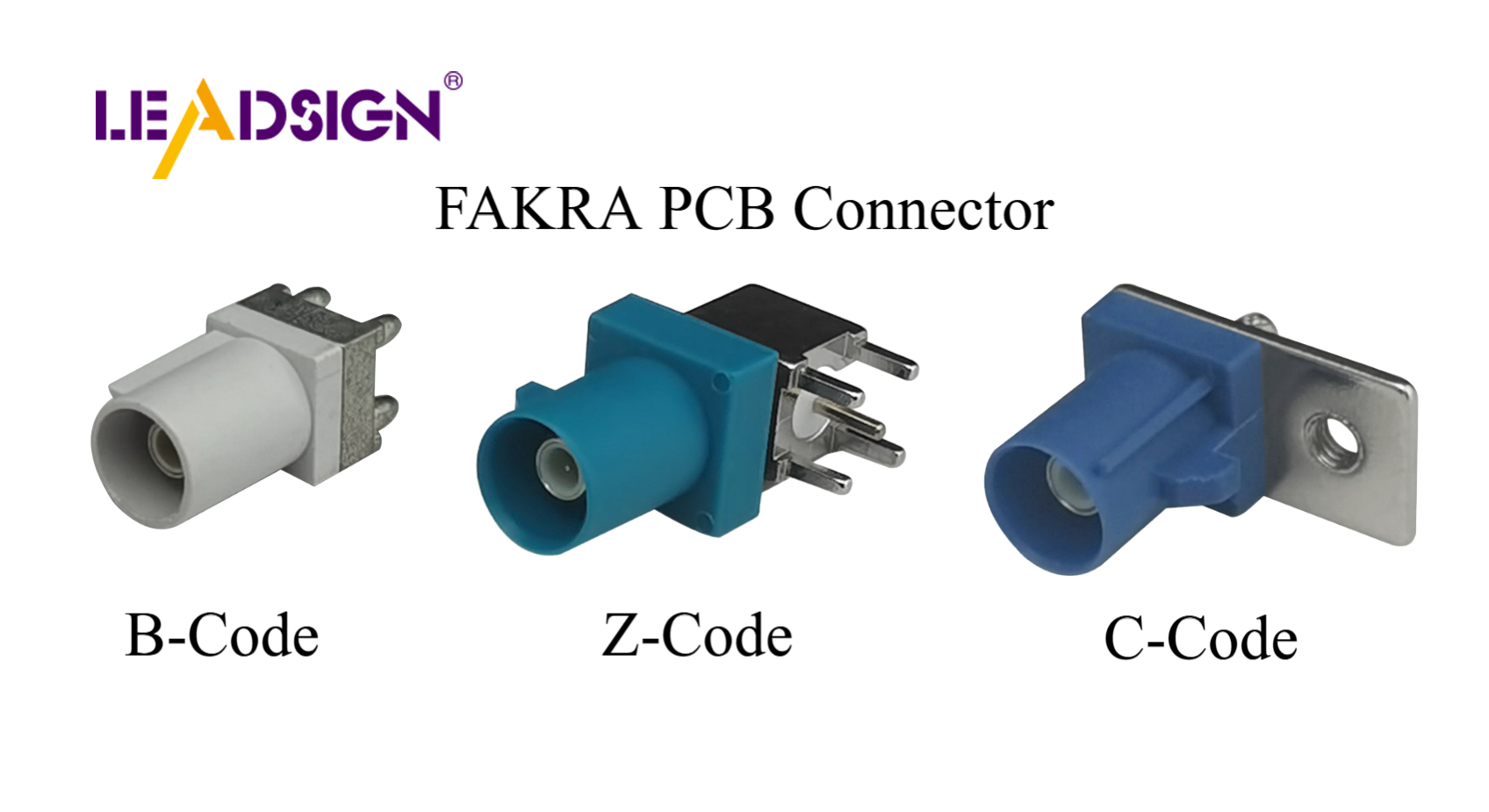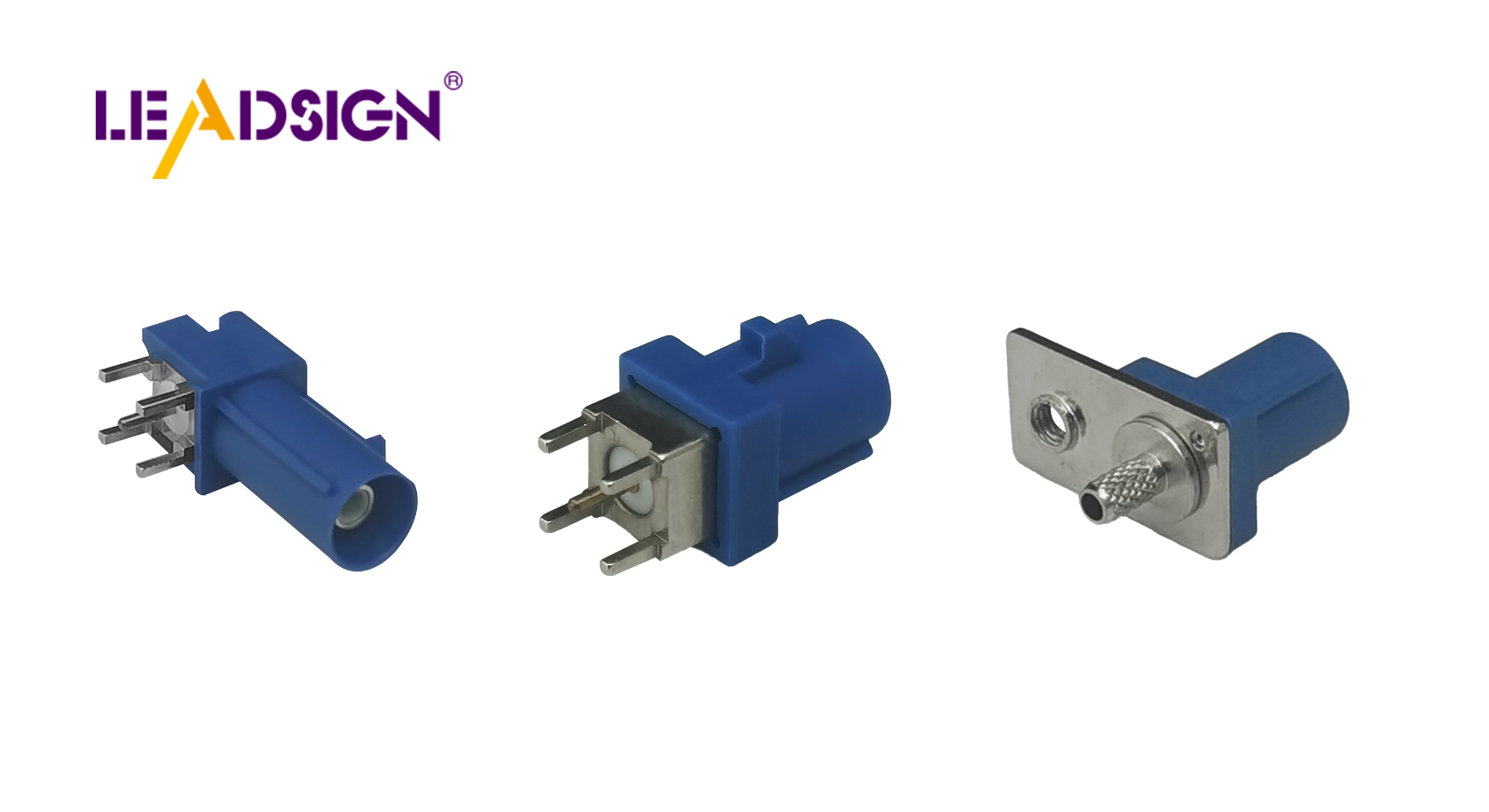FAKRA Connectors: Surprising Specs for Connectors

FAKRA connectors are very important in cars and phones today. They work up to 6 GHz and are strong against weather. They have a 50-ohm impedance and use colors to avoid mix-ups. These features help send data fast in cars, aiding new tech like self-driving and telematics. They are easy to put together with a push-on lock, making them popular in the industry.
Design Features of FAKRA Connectors

FAKRA connectors have special designs that make them very useful. They are important in many fields, especially in cars. These designs help them work well and be easy to use. This makes them a top choice for high-frequency links.
Color Coding System
The color coding of FAKRA connectors is a key feature. Each connector has its own color for its job. This makes setting up easier by helping people match the right parts. It stops wrong connections from happening. For example, GPS and radio cables have different colors so they are used correctly. This color system saves time and avoids mistakes during setup.
Mechanical Keying
Mechanical keying is also vital for FAKRA connectors. Each one has a special shape to fit properly. This stops wrong parts from connecting together. The mechanical keying adds safety, keeping connections strong even when things move or shake, like in cars.
Housing and Material Composition
The housing of FAKRA connectors makes them last longer and work better. They are covered with strong plastic that keeps out water and dust. The housing clicks when connected right, letting users know it's secure. The materials meet tough car industry rules, making sure they last long even in hard conditions.
Electrical Specs of FAKRA Connectors
Impedance and Frequency Range
FAKRA connectors have a 50-ohm impedance. This helps keep signals clear in high-frequency uses. It stops signal bouncing and sends power well, which is key for fast data transfer. These connectors work from DC to 6 GHz. This makes them fit for cars and phones. They handle fast data speeds needed by new car tech like music systems and smart driving aids.
Signal Integrity and Performance
Signal strength is vital for FAKRA connectors. It affects how well the whole system works. These connectors cut down on return loss and insertion loss, which can mess up signals. Return loss shows how much signal bounces back, while insertion loss shows lost signal power through the connector. By fixing these issues, FAKRA connectors keep signals strong, lowering failure risks in cars.
Scientific Research Findings:
Studies say that FAKRA cables' return loss and insertion loss impact signal quality a lot. Good engineering can lessen these effects, ensuring steady performance in car signals.
The tough build of FAKRA connectors, with their exact specs, makes them key where fast data and good signals are crucial. Their skill to keep signals clear under different conditions highlights their role in cars and more.
Uses of FAKRA Connectors
Cars and Vehicles
FAKRA connectors are important in cars. They help systems work better and keep people safe. These connectors are used in car radios and screens. They make sure sound and video move smoothly. They also help GPS work by getting signals right. FAKRA connectors are key for safety tools like radar. They need strong links to work well. These connectors can handle heat changes and shaking, making them great for cars.
Phones and More
In phones, FAKRA connectors send signals fast and clear. They help wireless systems talk without problems. You find them in cell phones and Bluetooth gadgets too. Their tough build keeps signals strong where it’s needed most. Besides phones, other places use FAKRA connectors for fast signals, showing how useful they are.
FAKRA connectors have cool specs. They work up to 6 GHz and have a 50-ohm impedance. This helps signals stay strong, which is key for cars and phones. Their tough design and color codes stop mix-ups, making them reliable. Picking the right connector matters for how well it works and lasts. As car tech gets better, FAKRA connectors are needed more. This shows how important they are in today’s connections.
See Also
Exploring Fakra Connectors: Essential Insights And Information
In-Depth Look At Male Fakra Connectors And Uses
Detailed Overview Of Female Fakra Connectors And Functions
Fakra Connectors Explained: Types, Basics, And Their Uses
Benefits And Installation Tips For Fakra Connectors Explained

